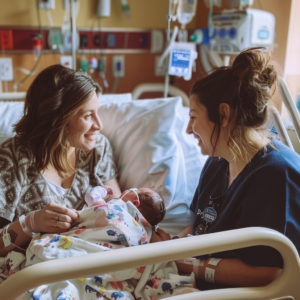The day I was discharged from the hospital with our newborn daughter was supposed to be one of the happiest of my life. After a challenging delivery, I was excited to bring her home and start our new life as a family of three. But as I waited outside the hospital with my bags and the baby carrier, my husband, James, was nowhere to be seen. I tried calling him, but my calls went unanswered. After 20 minutes of waiting, I had to call my sister to pick me up instead. My heart sank with disappointment and confusion as I sat in the car, cradling our baby girl.
When I finally got home, James was there, pacing nervously in the living room. “Where were you?” I asked, my voice shaking with hurt. He hesitated, avoiding eye contact, before blurting out, “I couldn’t come. I just couldn’t.” His cryptic response only fueled my frustration. I pressed him further, and that’s when he confessed the truth. James admitted that he had been at the hospital parking lot, but he couldn’t bring himself to come inside. He said he felt overwhelmed, unprepared, and terrified of the responsibility that came with being a father.
His words made me go pale. I had no idea he was struggling so deeply with fear and self-doubt. While I had spent months preparing for the baby’s arrival, James had been silently grappling with his own anxieties, too ashamed to share them. It was a mix of anger, sadness, and empathy that flooded over me as I realized how isolated he had allowed himself to become.
That night, we had a long, raw conversation about his fears and the support we both needed to move forward. I reminded him that parenthood wasn’t something he had to face alone—we were a team, and we would figure it out together. While his actions hurt me, they also highlighted the importance of open communication. It wasn’t an easy road, but it was a wake-up call that led us to address the deeper cracks in our relationship, ultimately making us stronger as partners and parents.



